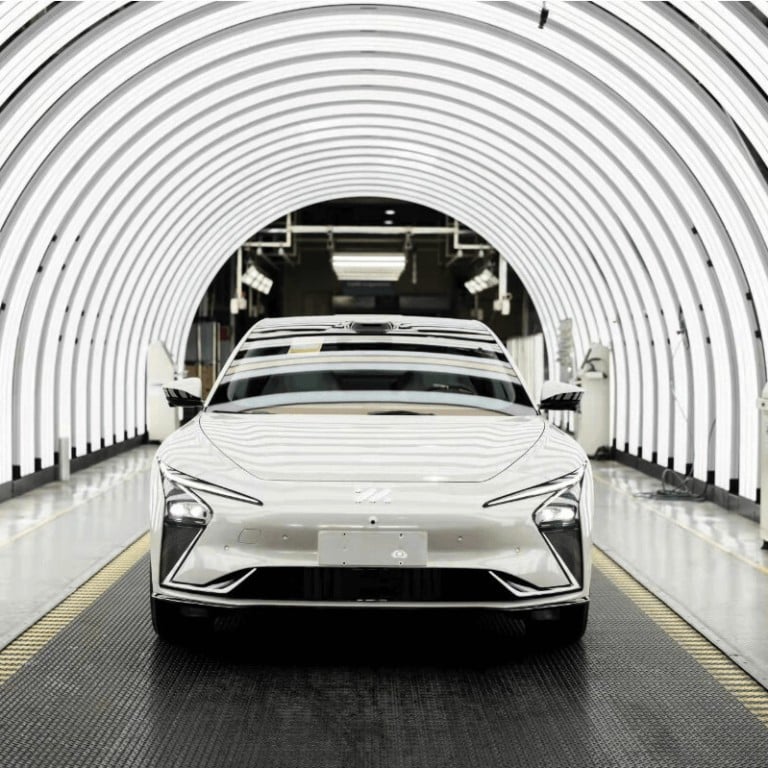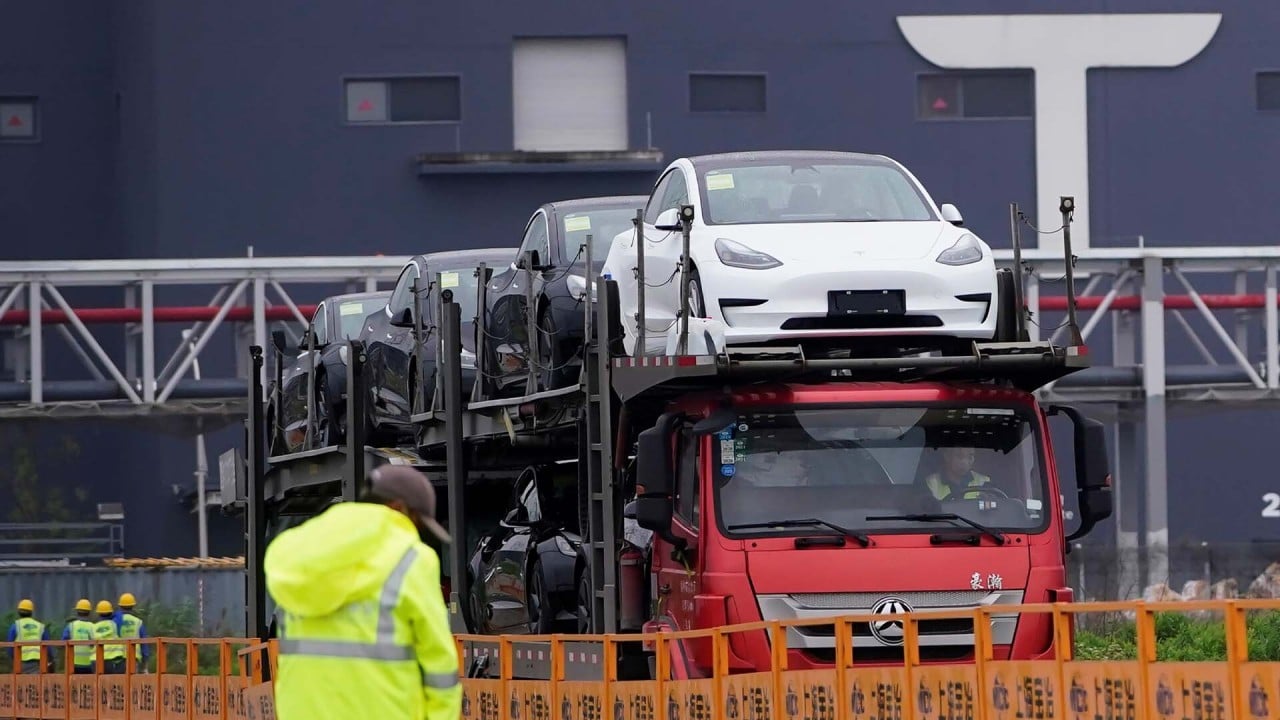
Alibaba-backed electric vehicle cruises into a booming market crowded by Tesla, Xpeng and NIO cars
- The IM L7, a luxury electric sedan from joint venture IM Motors, marks Alibaba’s first foray into the world’s largest electric vehicle market
- Tech rivals including Huawei, Xiaomi and Baidu have also bet on EVs to fuel future growth
The first smart electric car from IM Motors will go on sale on March 29, with the first deliveries slated for April, according to an article published on Thursday on Alizila, the official news hub of Alibaba, owner of the South China Morning Post.
IM Motors is an EV joint venture controlled by China’s largest state-owned carmaker SAIC Motor, and also owned by e-commerce giant Alibaba and the state-backed property operator Shanghai Zhangjiang Hi-tech Park Development. It was started in 2020 with a 7.2 billion yuan (US$1.14 billion) private equity fund. SAIC holds 54 per cent of the venture, while Alibaba and Zhangjiang Hi-tech each hold 18 per cent, according to Chinese media reports. The other 10 per cent is reserved for employees and customers who provide user data for future research and development.
Xiaomi to build its first electric vehicle factory in Beijing
The IM L7, a luxury electric sedan, was first unveiled at the Auto Shanghai car show last April. By December, it had passed test runs in nine Chinese cities. It will go on sale for 408,800 yuan.
The SAIC factory is the company’s biggest research and export centre for intelligent car cockpit products, interior decorations and seat components, according to a government statement from last August.
The new electric car marks Alibaba’s debut in an industry becoming increasingly crowded by Chinese tech firms. Rivalling tech giants have rushed to tap the world’s largest EV market to fuel new growth.
Sales of new energy passenger vehicles in China could grow 84 per cent year on year to 5.5 million units in 2022, according to a projection from the China Passenger Car Association.
Alibaba has been working with SAIC to develop internet-connected cars since 2016. Some of SAIC’s Roewe SUVs already run on Alibaba’s YunOS, which features intelligent digital maps, voice controls, action cameras and an internet ID.
Qian Gang, a digital innovation director at IM Motors, said in a seminar in Shanghai last September that Alibaba and SAIC mostly provide capital support for the joint venture. IM Motors’ core technology belongs to the company itself, according to Qian.


